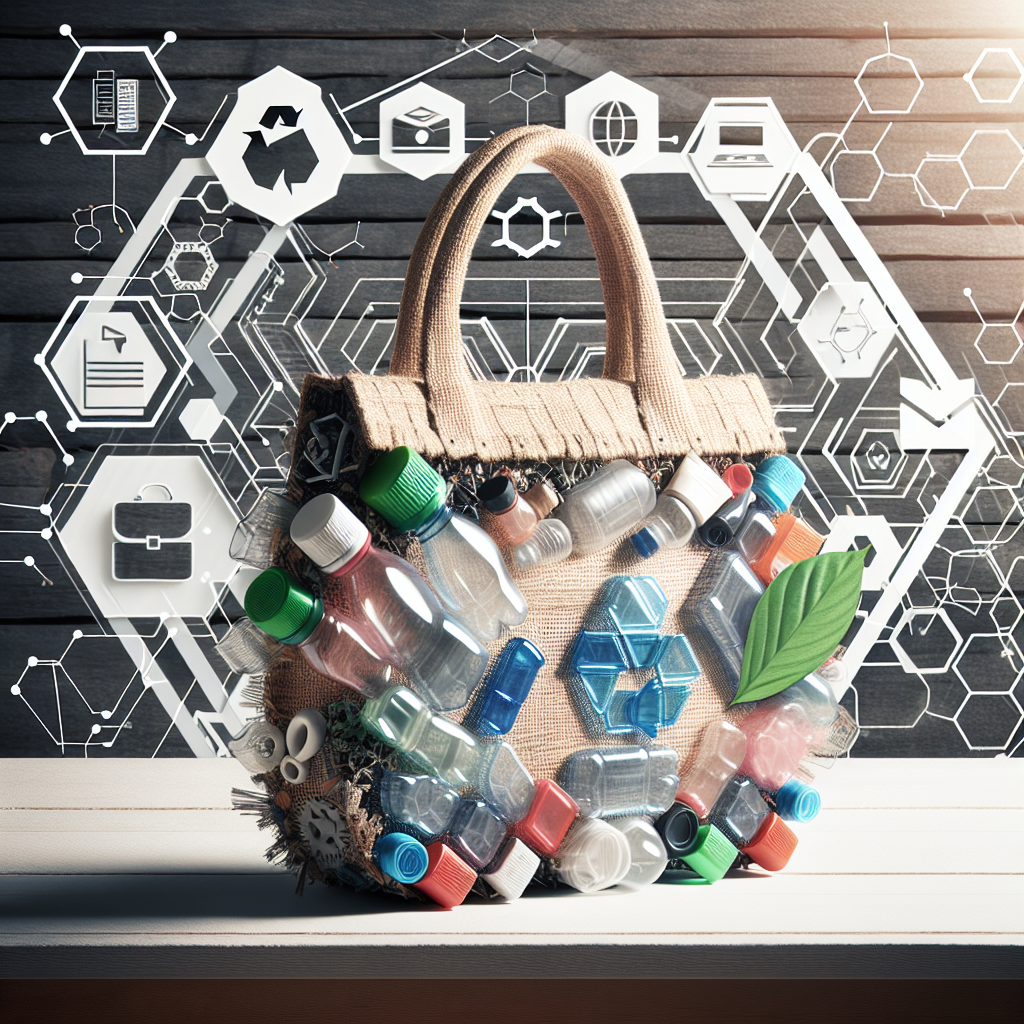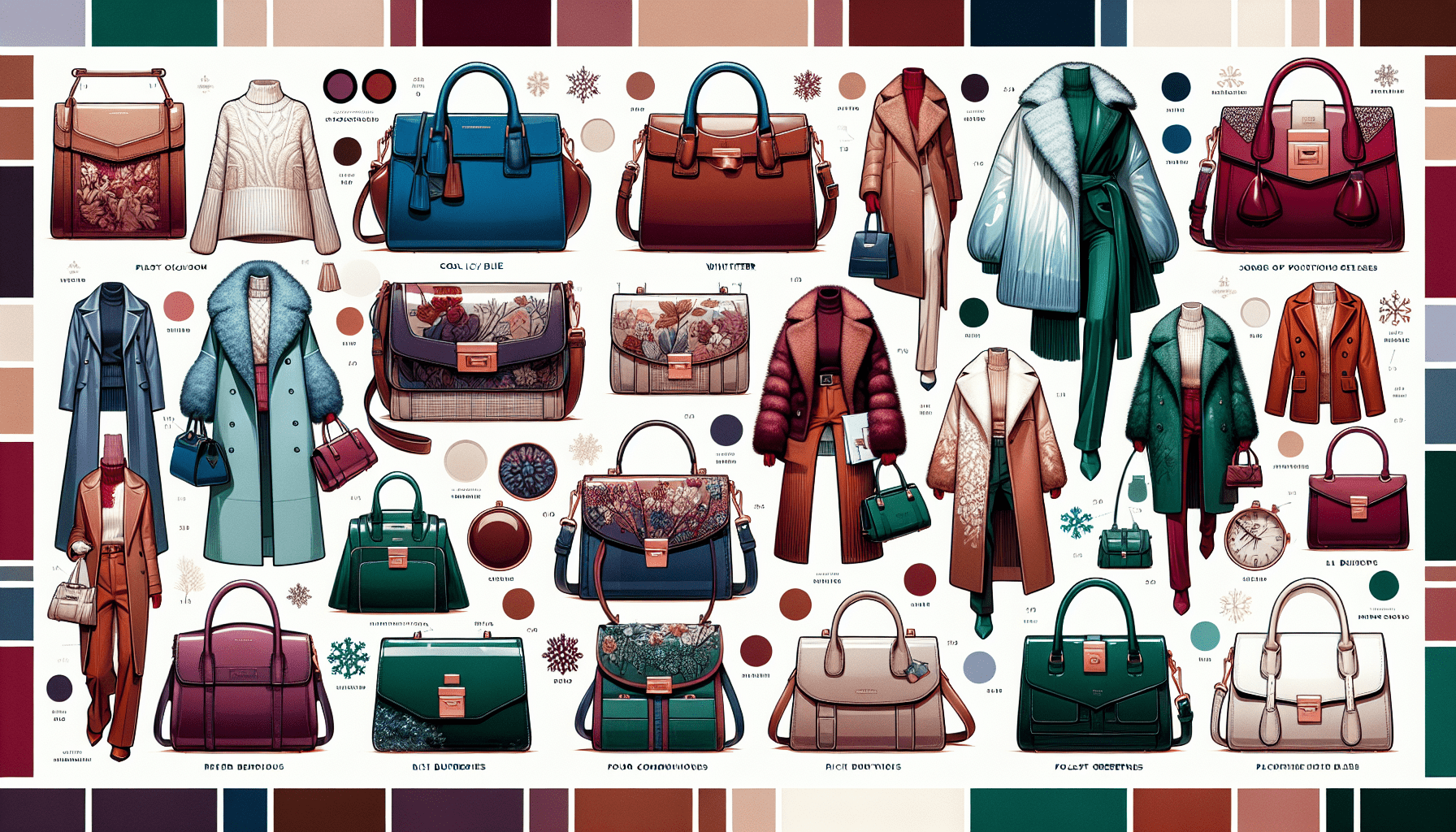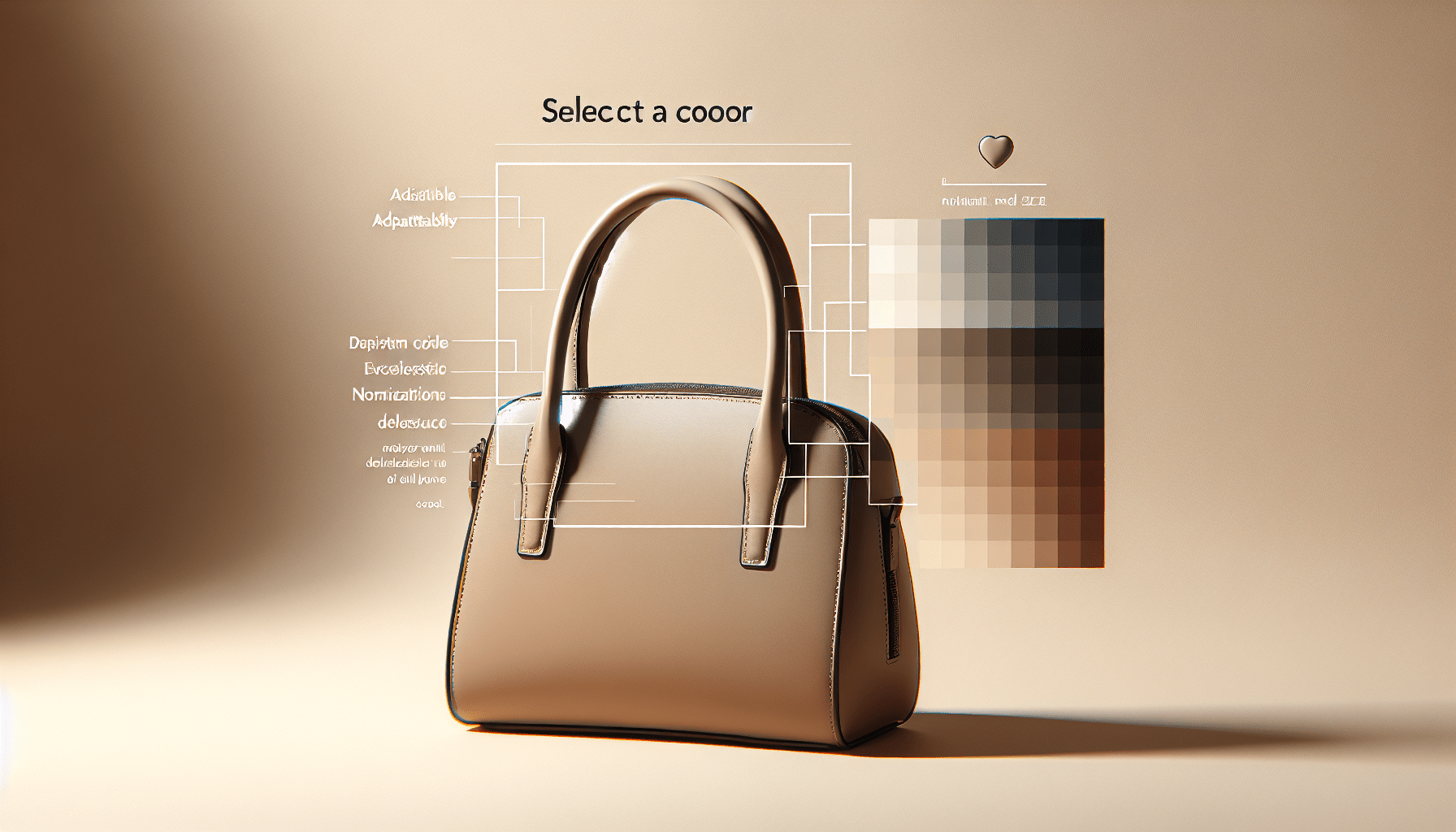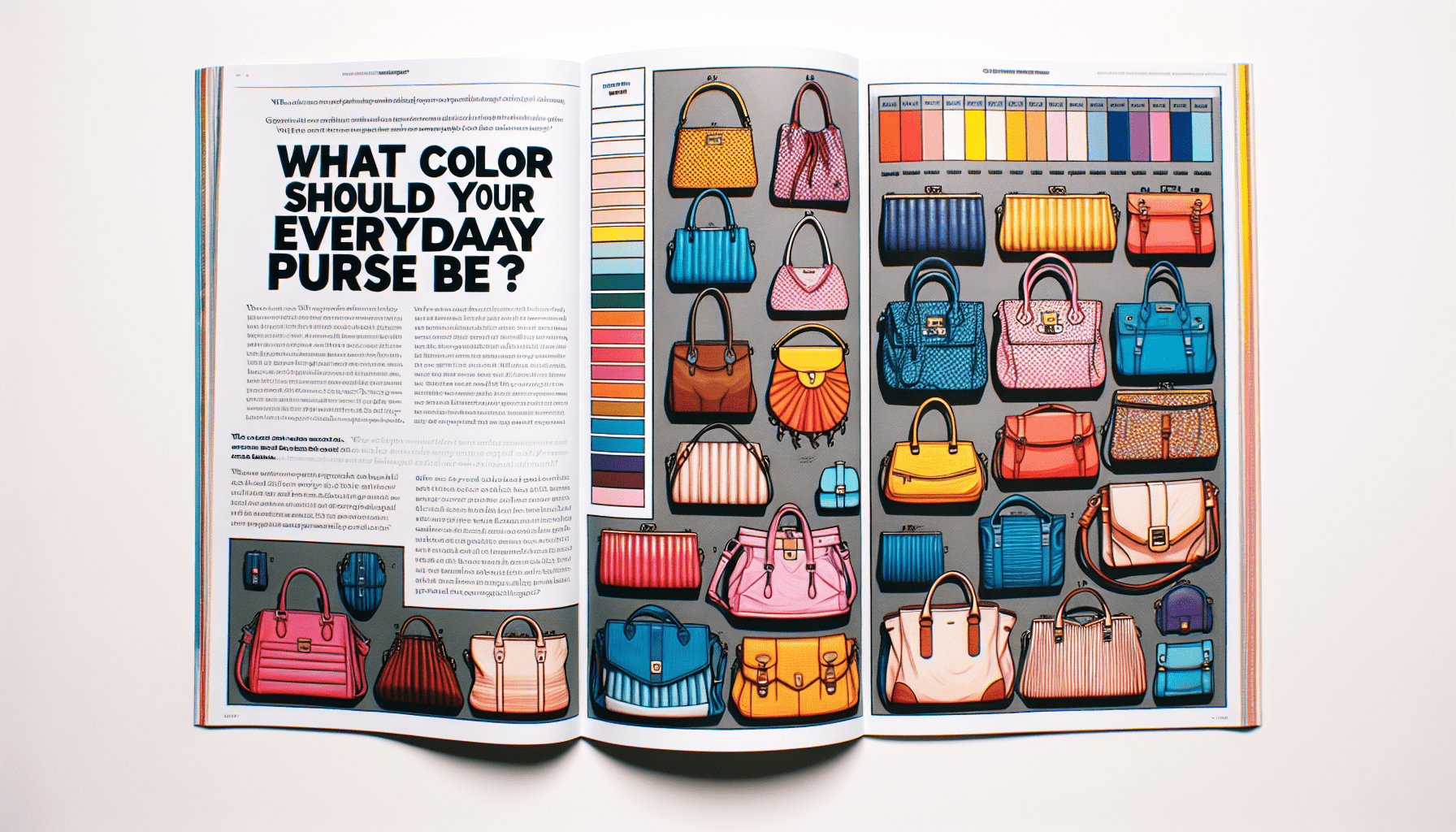Are There Any Ethical Considerations When Buying Handbags
When it comes to buying handbags, many of us are motivated by style, functionality, and price. However, have you ever stopped to think about the ethical considerations that may be associated with your purchase? From the sourcing of materials to the treatment of workers, the fashion industry often raises ethical questions. In this article, we will explore the various aspects to consider when making an ethical choice in handbag purchases. By raising awareness of these issues, we hope to empower you to make a more informed and conscientious decision the next time you are in the market for a new handbag.
Understanding Ethical Production
When it comes to handbags and other fashion items, ethical production is an important consideration for many consumers. But what exactly constitutes an ethical production process? Ethical production refers to the use of fair and responsible practices throughout the entire manufacturing process. This includes not only the treatment of workers, but also the sourcing of materials and the overall impact on the environment.
Ethics in materials sourcing
One aspect of ethical production is the ethical sourcing of materials. The fashion industry relies on a wide range of materials, from natural fibers like cotton and silk to synthetic materials like polyester. Ethical sourcing involves ensuring that these materials are obtained in a responsible and sustainable manner. This means considering the environmental impact of mining or harvesting the materials, as well as the social and labor conditions involved in their production.
The concept of fair trade in manufacturing
Another important consideration in ethical production is the concept of fair trade. Fair trade is an approach to manufacturing that aims to promote better working conditions and fair wages for workers, particularly in developing countries. Fair trade practices ensure that workers receive a fair share of the profits made from their labor and are not exploited or subjected to forced labor. For consumers, supporting fair trade means they can have confidence that the products they purchase have been made under ethical and fair conditions.
Animal Cruelty in Leather Production
Leather has long been used in the fashion industry, but unfortunately, there are ethical concerns surrounding its production. One of the key issues is the use of exotic animals in fashion. Many luxury brands use exotic animal skins, such as crocodile or python, in their handbags. However, the sourcing of these skins often involves the cruel treatment and killing of these animals. This raises questions about the ethical implications of using these materials in fashion.
In recent years, there has been a rise in the availability of leather alternatives. These alternatives, such as vegan leather or recycled materials, offer a more ethical choice for consumers. By opting for these alternatives, individuals can avoid supporting the unethical treatment of animals in the fashion industry. However, it’s important to consider the ethical implications of these alternatives as well, as some synthetic materials may have negative environmental impacts.
Speaking of the environment, leather production is also a major contributor to climate change. The process of tanning leather involves the use of chemicals that have a significant environmental impact. The wastewater from tanneries often contains toxic chemicals that can contaminate water sources and damage ecosystems. Additionally, the raising of animals for leather production contributes to greenhouse gas emissions, deforestation, and the depletion of natural resources. These environmental consequences further highlight the need for more ethical and sustainable practices in the fashion industry.
The Impact of Fast Fashion
Fast fashion has become a dominant force in the fashion industry, but it has significant ethical implications. This business model relies on producing cheap and trendy clothing at a rapid pace, encouraging consumers to buy more and more. However, this constant cycle of overconsumption has severe environmental consequences.
One of the key problems with fast fashion is that it encourages overconsumption. With new trends constantly emerging, consumers are enticed to buy more and more clothing, often at low prices. This leads to a culture of disposability, where items are quickly discarded and end up in landfills. Overconsumption of fashion items contributes to the depletion of natural resources, increased waste generation, and pollution.
The environmental consequences of fast fashion are staggering. The fashion industry is one of the largest contributors to water pollution, as the dyeing and finishing processes release toxic chemicals into waterways. The production of textiles also requires vast amounts of water and energy, contributing to climate change and putting a strain on natural resources. Additionally, the transportation of garments and the use of synthetic materials further exacerbate the industry’s carbon footprint.
However, the human cost of fast fashion cannot be overlooked either. Fast fashion brands often rely on cheap labor in developing countries, where workers are subjected to exploitation and poor working conditions. Sweatshops, long working hours, low wages, and lack of workers’ rights are all common issues associated with fast fashion. The demand for cheap and fast fashion has created a vicious cycle that perpetuates social injustice and human rights violations.
Child Labor and Exploitation in the Fashion Industry
One particularly disturbing aspect of the fashion industry is the extent of child labor and exploitation in the production of handbags and other fashion items. In many countries, children are employed in the manufacturing sector, often working in dangerous conditions and being denied their basic rights. Handbag production, in particular, has been found to involve child labor in some regions.
The use of child labor not only violates international labor laws but also has long-term consequences for the children involved. These young workers are often denied access to education and suffer from physical and psychological harm. The fashion industry must take responsibility for combating child labor and ensuring that ethical manufacturing practices are upheld.
Efforts to address child labor and exploitation in the fashion industry must also include a focus on workers’ rights more broadly. Exploitation of workers, including adults, is a pervasive issue throughout the supply chain. Garment workers often face unsafe working conditions, long hours, and inadequate wages. The fashion industry must prioritize the fair treatment of workers and the protection of their rights.
Regulations play a crucial role in protecting vulnerable workers in the fashion industry. Governments and regulatory bodies have a responsibility to enforce labor laws and hold companies accountable for their ethical practices. Additionally, consumers can influence change by supporting brands that prioritize workers’ rights and advocating for stricter regulations to protect workers from exploitation.
The Role of Sustainability in Fashion
Sustainability has become a buzzword in the fashion industry, and for good reason. As consumers become more aware of the environmental impact of their choices, there is a growing demand for sustainable and eco-friendly fashion options. In the case of handbags, sustainability encompasses various aspects, including materials, manufacturing processes, and the overall lifecycle of the product.
the demand for sustainable handbags is increasing, with consumers seeking products that are made from environmentally friendly materials and produced using responsible practices. Sustainable materials include options like organic cotton, hemp, and recycled materials. By choosing these materials, consumers can reduce their environmental footprint and support the development of a more sustainable fashion industry.
Achieving sustainability in materials and manufacturing involves careful consideration of the entire supply chain. This includes reducing the use of harmful chemicals, minimizing waste, and implementing recycling or upcycling initiatives. Additionally, adopting renewable energy sources and prioritizing energy efficiency can help reduce the carbon emissions associated with the production of handbags.
While sustainable practices may require an upfront investment, there are long-term financial benefits to be gained. Implementing sustainable practices can lead to cost savings through reduced energy consumption, waste management, and increased efficiency. Furthermore, companies that prioritize sustainability often enjoy greater brand loyalty and appeal to consumers who value ethical and environmentally friendly products.
Ethical Sourcing of Materials
Understanding the life cycle of handbag materials is vital to ensuring ethical sourcing. This includes considering the environmental impact of each material and the social and labor conditions involved in its production. By understanding where materials come from and how they are produced, consumers can make more informed choices and support brands that prioritize ethical sourcing.
Sustainably sourced materials play a crucial role in ensuring ethical production. This involves selecting materials that are obtained in a responsible and sustainable manner, considering factors such as environmental impact, biodiversity, and social responsibility. For example, responsibly sourced cotton can help prevent deforestation and reduce chemical pollution associated with conventional cotton farming.
The controversy surrounding synthetic materials, such as polyester, is worth noting. While synthetic materials can offer certain benefits, such as durability and affordability, they also have significant environmental drawbacks. Polyester is derived from non-renewable fossil fuels, and its production contributes to greenhouse gas emissions and microplastic pollution. It is essential to consider these factors when making ethical choices in materials sourcing.
Sale of Counterfeit Handbags
The sale of counterfeit handbags is not only illegal but also raises ethical concerns. Counterfeit goods often support illegal activity, including organized crime and human trafficking. The profits from counterfeit sales can fund other criminal enterprises that harm society as a whole. By buying counterfeit products, individuals unknowingly contribute to these criminal networks.
Quality is another issue associated with counterfeit handbags. Knockoff products are often made from cheap materials and lack the craftsmanship and durability of genuine handbags. This leads to disappointment for consumers who may find that their counterfeit handbags quickly fall apart or do not meet their expectations. Choosing authentic products ensures that consumers receive the quality they expect and supports the brands and workers behind them.
The ethics of buying knockoff fashion are also a matter of debate. While some argue that buying knockoffs allows consumers to access stylish products at a lower price, others contend that it undermines the work of designers and the creativity of the fashion industry as a whole. Ultimately, it is up to consumers to weigh the ethical implications and make conscious choices regarding their purchasing behaviors.
Promoting Fair Trade in Fashion
Fair trade is a powerful tool for ensuring ethical practices in the fashion industry. Fair trade focuses on protecting workers’ rights and supporting sustainable livelihoods for producers in developing countries. By purchasing fair trade fashion, consumers can make a positive impact on the lives of workers and contribute to the development of local economies.
Fair trade certification is a crucial aspect of promoting ethical practices in the fashion industry. Certification ensures that products meet certain social, environmental, and economic standards. Fair trade certification schemes often require fair wages, safe working conditions, and the prohibition of child and forced labor. By looking for fair trade certification labels, consumers can easily identify brands that are committed to ethical and fair practices.
The impact of fair trade on local economies is profound. Fair trade not only ensures that farmers and workers are paid fair prices for their products, but also provides access to training, education, and other resources that can help communities thrive. By supporting fair trade, individuals can help break the cycle of poverty, empower marginalized communities, and promote sustainable development.
Transparency in the Fashion Industry
Transparency is increasingly demanded by consumers who want to know where and how their products are made. Demand for transparency in production processes has led to greater scrutiny on the fashion industry and a push for more accountability. Brands are now expected to disclose information about their supply chains, including the sourcing of materials, labor conditions, and environmental impact.
Companies are responding to these calls for transparency in various ways. Some brands have started publishing sustainability reports or sharing information on their websites about their ethical practices. Others have joined industry initiatives and partnerships that promote transparency and accountability. By being transparent, brands can build trust with consumers and demonstrate their commitment to ethical production.
Transparency serves as a powerful tool for consumers to make ethical buying decisions. With access to information about a brand’s practices, consumers can make more informed choices and support companies that align with their values. By demanding transparency from brands, individuals can empower themselves as ethical consumers and drive positive change within the fashion industry.
Consumer Responsibilities and Ethical Choices
As a consumer, you have a responsibility to make ethical choices when buying handbags and other fashion items. Here are some steps you can take to verify the ethics of a handbag brand:
-
Research the brand: Look for information about the brand’s ethical practices, including their sourcing of materials, labor conditions, and environmental initiatives. Check if they have certifications or accreditations that indicate their commitment to ethical production.
-
Consider the materials: Opt for handbags made from sustainable and responsibly sourced materials. Look for organic or recycled options that have a lower impact on the environment.
-
Support fair trade: Choose handbags that are certified as fair trade, as this ensures workers receive fair wages and are treated ethically. Fair trade certification labels make it easier to identify brands that prioritize workers’ rights.
-
Look for transparency: Support brands that are transparent about their supply chains and production processes. Look for brands that share information about their sourcing, labor conditions, and environmental impact.
In addition to these steps, you can also influence the fashion industry through conscious buying. By supporting brands that prioritize ethical practices, you send a message to the industry that sustainability and ethics are important factors in consumer choices. Encourage friends and family to make ethical choices as well, and together, you can create a demand for fashion that respects workers’ rights and the environment.
Lastly, there are resources available for ethical fashion consumers. Look for organizations and websites that provide information about ethical brands, sustainable materials, and responsible manufacturing practices. These resources can help inform your buying decisions and support your journey as an ethical fashion consumer.
In conclusion, ethical considerations are indeed important when buying handbags. By understanding ethical production, animal cruelty in leather production, the impact of fast fashion, child labor and exploitation, sustainability, ethical sourcing of materials, sale of counterfeit handbags, fair trade, transparency, and consumer responsibilities, you can make more informed choices and contribute to a more ethical and sustainable fashion industry.




